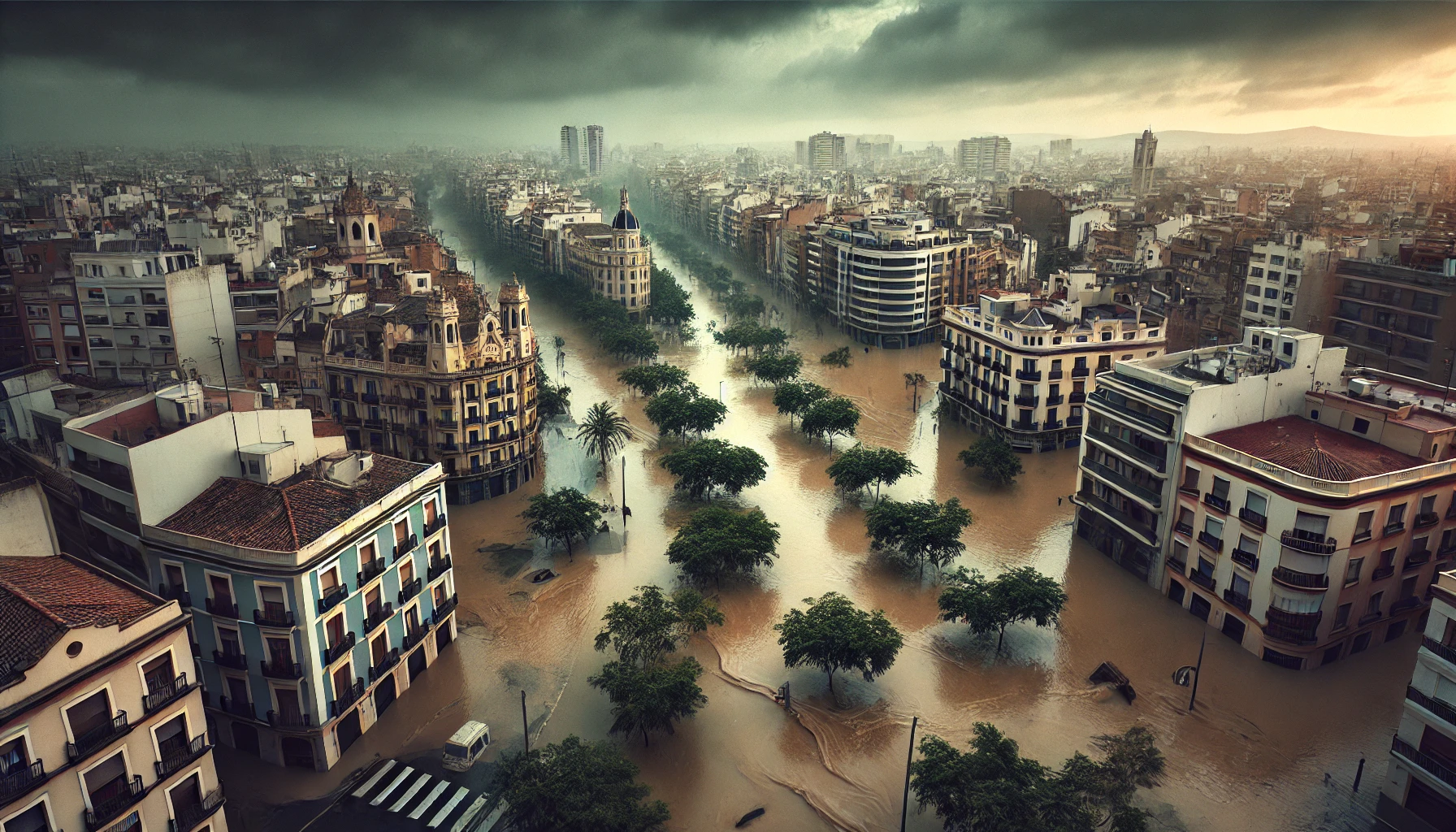The Valencia Paradox
In the Age of Extreme Weather Events

Article by Vision Team
There’s a paradox that must have crossed the mind of King Felipe VI of Spain as he watched his authority drown in the floodwaters. Valencia—a city that once filled him with pride—is now the most striking example of a nation that seemed poised to surpass Italy in progress. At the beginning of the century, Felipe inaugurated an architectural masterpiece designed by one of the world's leading architects, Santiago Calatrava, a native of Valencia. This stunning complex, resembling a white spaceship, was built on the drained bed of the Turia River to prevent floods like the devastating one in 1957.
Today, Valencia remains the top choice for Erasmus students in Europe; according to Forbes, it is the favorite city for those working outside their country of origin. In 2024, the European Commission celebrated Valencia as the "Green Capital of the Union", recognizing it as one of the hundred cities striving to achieve climate neutrality by 2030. Yet now, from NASA’s satellites, all that can be seen of this once-prized city is a flooded landscape where lives have been tragically lost.
A staggering 25 million euros were allocated as the initial emergency intervention to restore a single railway line and repair part of Valencia's ring road, reconnecting Spain's third-largest city. The death toll has reached 220, with many more missing, trapped in garages inundated by floodwaters. There are three key explanations for such a devastating impact.
The first failure relates to the delayed warning alarms and the decision to leave evacuation to those managing offices and factories. While schools in smaller towns south of the capital were evacuated by 4 p.m. on October 29, a general alert for Valencia wasn’t sent until 8 p.m. via SMS, directing many drivers into a city already transformed into a torrent. During emergencies, as demonstrated during COVID-19, data must be centrally collected, and decisions must be made at a centralized level to coordinate orderly evacuations and prevent chaos.
The second reason for the catastrophe is a classic issue in such tragedies, but it becomes even more acute when regional autonomies are so strong that they override common sense. The Spanish government had to wait for authorization from Valencia's regional authorities before deploying the military and civil guard to aid affected residents. Spain’s 17 autonomous regions, a legacy meant to prevent centralized control after Franco’s dictatorship, are rooted in historical identities. However, this fragmentation can hinder emergency responses. While communities should be the first line of defense, leveraging local knowledge and resources, the state must step in immediately when the scale of the crisis exceeds local capacity. To that end, institutions must encourage widespread training in emergency response skills.
A third, and more concerning, reason lies in a vulnerability that transcends even the most advanced urban planning. Today, we are all exposed to the rapid and unprecedented impacts of climate change, and Spain is no exception. A city meticulously designed to withstand historical weather events may be completely overwhelmed by the intensifying conditions of today. Entire regions, even in wealthy nations, are now deemed uninsurable—evident in places like Florida.
Valencia illustrates the paradox of industrialized societies: the urgent need to rethink the intellectual, civic, and technical frameworks we rely on to prepare for events we can no longer predict with certainty. This disaster serves as a powerful call to action. In Valencia, certainties have crumbled. Plans that once seemed ideal are now inadequate. In a world facing unprecedented challenges, people demand practical solutions, not triumphalist rhetoric. This explains the anger of those who seek normalcy, not empty platitudes.
References
K. Peddicord (2024), Is This Sun-Soaked Spot Europe’s Happiest Expat Haven? Link.
European Commission, Environment (2024) Link.
WMO (2024) Devastating rainfall hits Spain in yet another flood-related disaster, Link.

